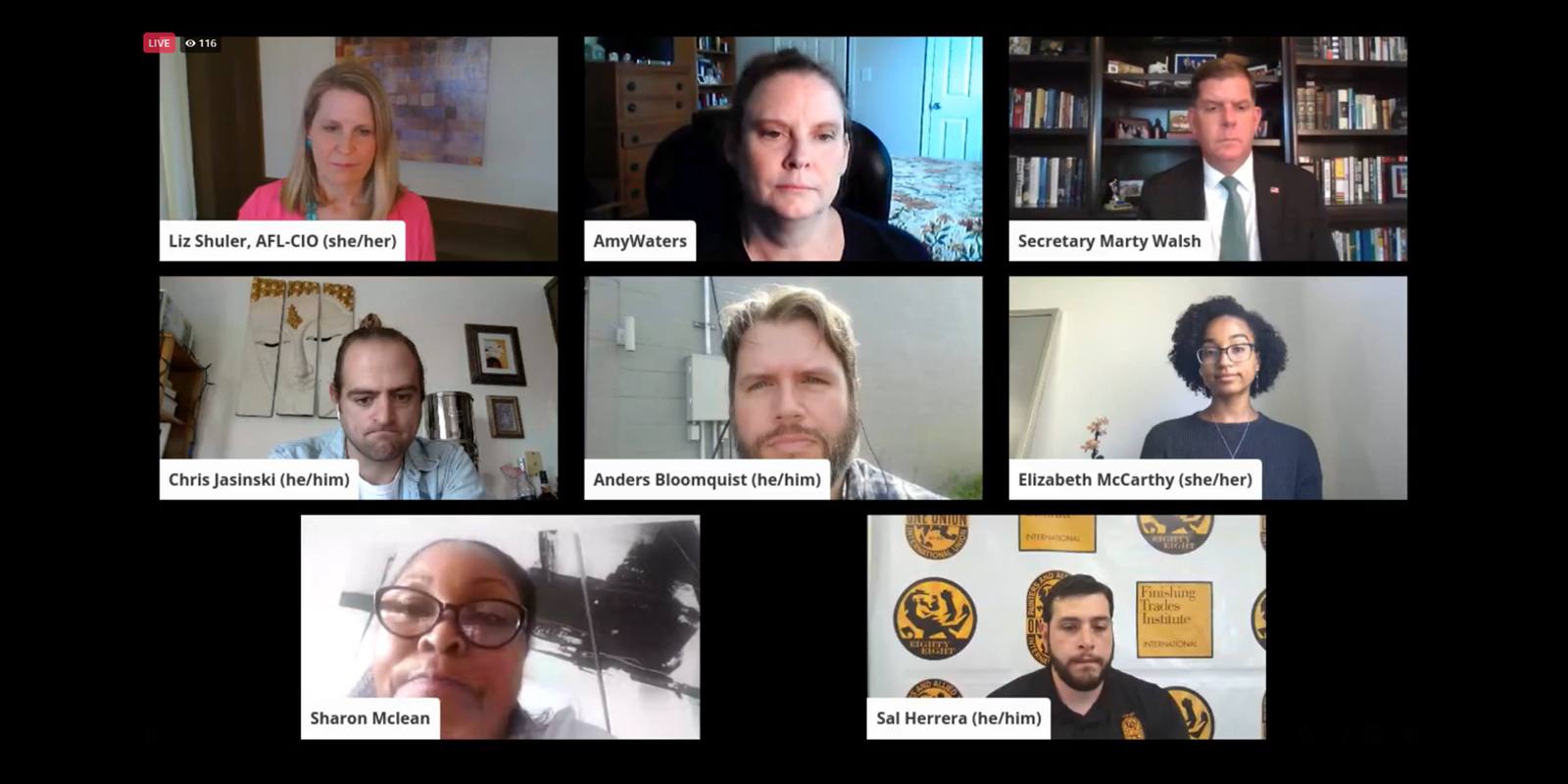Sharon McLean, a residential counselor with SERV Centers of New Jersey in Mercer County, knows well the challenges workers like her face in trying to organize a union.
McLean was invited to share her knowledge and perspectives at a pre-Labor Day Facebook roundtable organized by Labor Secretary Marty Walsh and AFL-CIO President Liz Shuler.
McLean and five other workers from across the country representing a variety of industries spoke at the event. They are all grappling with employers who are trying to stop them from gaining a voice at work through tactics such as bullying and intimidation.
McLean knows of SERV’s untapped potential because, as a 22-year veteran, she remembers when there was little turnover, safe working conditions and when employees were rewarded for their hard work.
“When I first started at SERV, it was a great company,” said McLean.
Now, she says, “SERV is not making it a safe environment for consumers” or investing in the people who deliver services.
Nearly two years ago, McLean and her co-workers formed a union through AFSCME New Jersey (Council 63). But they have yet to secure their first contract. Frustrated, residential counselors and maintenance workers SERV Centers in Mercer County voted overwhelmingly to stage a 24-hour strike on Labor Day.
McLean said SERV management has tried bullying, intimidation and lies to get workers to prevent a contract. Their true priorities show in their spending, she said.
“Instead of putting money into the employees and the facilities, they have been giving themselves bigger raises and bigger bonuses after taking away our bonuses and giving no raises for eight straight years,” McLean said on the roundtable.
AFL-CIO’s Shuler, the labor federation’s first female president, said, “Unions are actually the way to take on issues like fairness on the job, fighting discrimination, access to high quality and good paying jobs.”
Shuler said workers organize in the face of anti-worker laws and shameful employer tactics “because we care about our coworkers, we care about our communities, about the work that we do, we care about the people we serve.”
AFSCME’s commitment to behavioral health workers in New Jersey and nationwide remains strong. Through the United We Heal campaign, our union is working hard to give workers in the industry a voice on the job and opportunities to build power.
Walsh reiterated that President Joe Biden supports reforming the system to give workers who want to form unions a better chance at doing so.
“President Biden has made it very clear, from the beginning of his presidency through today, that workers should have the right to organize, workers should have the right to collectively bargain, all workers should be in the middle class and all workers should have those rights and protections across this country,” he said.
As public support for unions reaches its highest level since 1965, AFSCME and other unions are pushing Congress to pass the Protecting the Right to Organize, or PRO, Act and the Public Service Freedom to Negotiate Act.
McLean and her co-workers are ready to keep fighting until they gain the respect they deserve.
“I love what I do,” said McLean. “Our union will give us a voice and make us stronger.”
